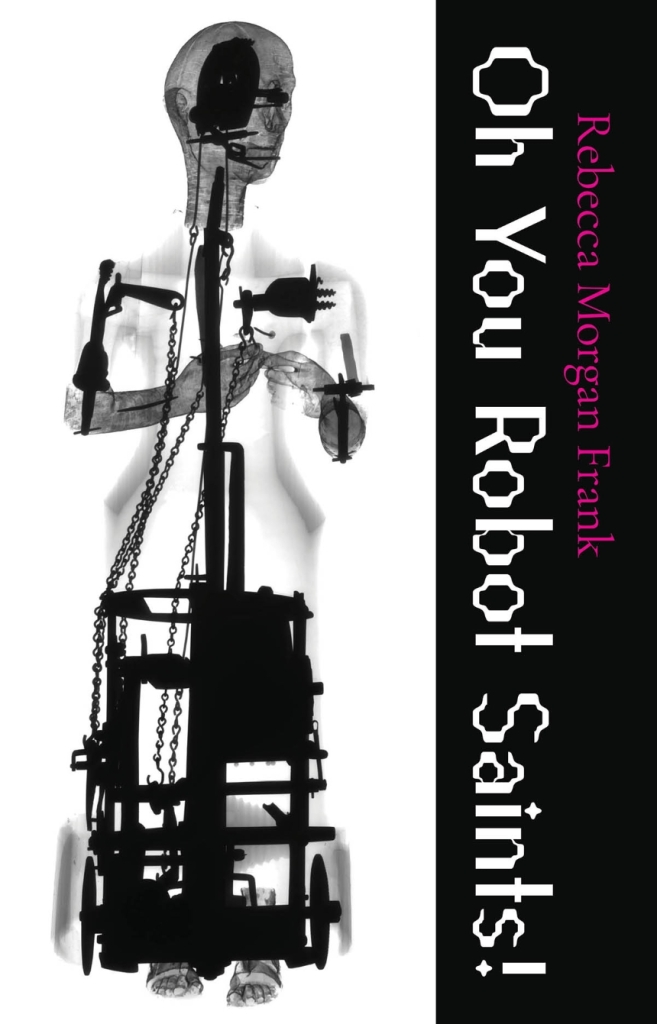
New York Public Library Best Books of 2021
NEW YORK TIMES NEW & NOTABLE POETRY
“[Frank] picks at the tension between born and unborn, magic and science, fertility and sterility, the sexed and the sexless, the lifeless, the living, and the never-lived….That she reckons with the machine makes the aliveness of her voice, the heat behind it, all the more evident, and all the more urgent.” THE BOSTON GLOBE
“Eye-opening, jaunty: this is a whirl of a book.” THE MILLIONS
Oh You Robot Saints! amasses many compelling visions and intriguing premises. It also holds out for the human subject’s liberation from technological subjugation by fighting back — ”
Hyperallergic
“The truth is in the job, not the wound” is one of my favorite lines in Rebecca Morgan Frank’s daring Oh You Robot Saints!, a book in which the beauty, jealousy, and worship of the gods take center stage. Part of the precision of this book and every one of its lines has to do with Frank’s commitment to showing us tragedy as the Greeks would through her indomitable use of second person like a director giving instructions: “Fill the ark: start / with the giant flower / beetle . . .” And part of it has to do with full-on Sapphic tenderness: “The women I’ve loved and lived with are dead, / and today it felt like spring might return.” This volume proves Rebecca Morgan Frank is a poet of the exact and the harrowing.
Jericho Brown
We had always thought our art would be immortal,” muses the concluding poem of Oh You Robot Saints!, Rebecca Morgan Frank’s timely meditation on the complex work of making. Frank’s book reveals how the many kinds of poiesis we humans commit satisfy similar urges: we build so many lovely machines-out of cutting-edge composites, out of words, out of our own genetic material-each with the craving to expand beyond ourselves, to outrun our frail limits. Frank gazes directly at our compulsion to “build / a body that moves,” offering these poems as a kinetic example of their own argument. “To be true is to be an imitation,” Frank argues; painstaking, handmade, Frank’s clockwork poems strike true.
Kimberly Johnson
[A] beautiful, frightening manifesto on the anxieties of automation; it roots in fears about human obsolescence, uncomfortable questions of what makes a thing “living,” the humility of being an organic intelligence in the face of relentless mechanical improvement, and the terror of one’s invention finding sentience and autonomy.
Amber Adams, 32 Poems
You must be logged in to post a comment.